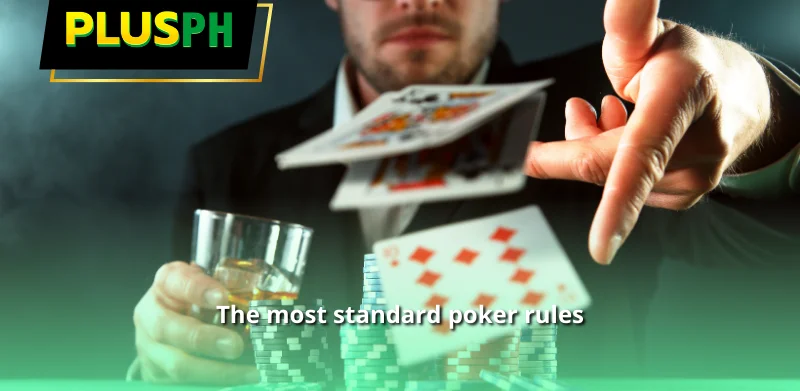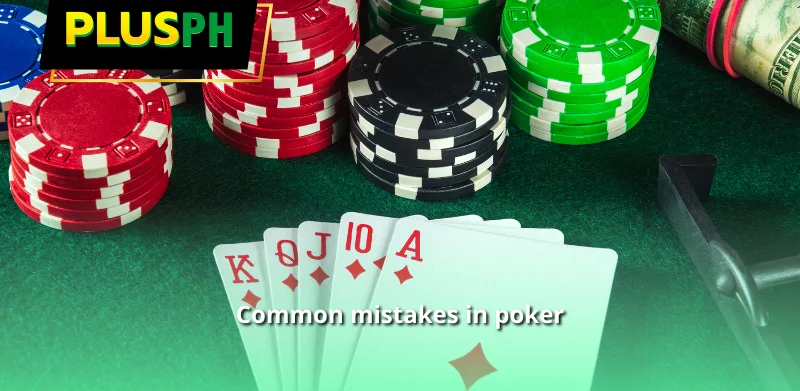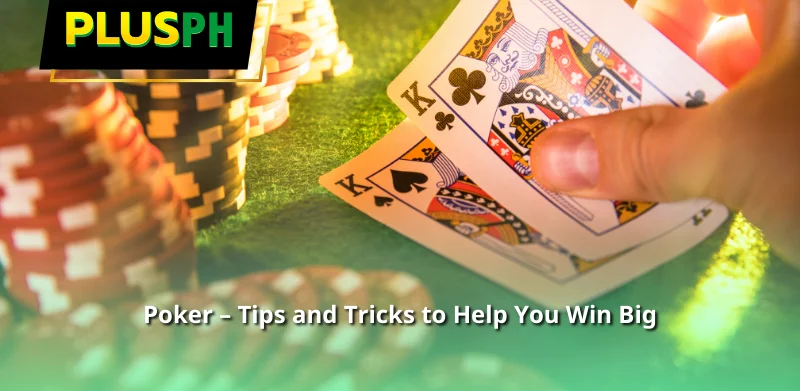This ultimate guide is going to explain you the basics of poker, giving practical advice for becoming a better player and pinpointing the worst leaks in your game.
Learn about the game of poker
Objective: Your goal is to bet your money on the best hand, hoping that you eventually end up with a winning deck of cards. In the main action, there are betting rounds either to win the pot or to force others to fold. The combination of luck and strategy makes Kaboo an exciting and difficult experience.
The most standard poker rules
The poker rules will vary slightly based on the specific variant, but regardless of the type of poker you are coming together to play with friends, it is usually exactly the same. In Texas Holdem, each player starts with two private cards (hole cards) that belong to them. The first three are reunited in the Flop, then the Turn, and finally the River, which together constitute five community cards that help them complete their best possible hands.
Initial Betting Round – Pre-flop
Pre-flop – This is the first round of betting before any community cards are shown. Players can bet before betting commences as a play against their hole cards, which they do in the hope of gaining an edge or perhaps forcing others to fold. This first step is significant since it will set the tone of the game plus establish what players might do in the opening rounds.
The 3-card round in the game rules – Flop
The Flop is when the first three community cards are dealt face-up on the table, and this gives players a chance to start making legitimate poker hands. That burning card refers them to a betting round and they can adjust their strategies according to that. If the Flop is in your favor, a player who may play aggressively might chip in large wagers while others will fold their weak hands.
The fourth round of dealing cards in the rules of the game – Turn

This is again followed by a betting round like the one on the Flop, and soon after that, the Turn card appears. The fourth card gives players even more combination possibilities. The Turn betting round is an important chance to reassess pot odds, adjust strategy, and evaluate the strength of your hand. Forge and PretendJatakaForward tension builds as players decide whether to try to increase their bid or force others out with a take…
The 5th round of dealing cards when participating in a poker game – River
The River card is dealt in the last round of dealing. The River is the last opportunity for players to improve their hands or bluff. Then there is a last circular of having a bet. When this has been accomplished, the betting will end and the players with their cards left have to open theirs. The game is won by the player with the best five-card hand from a combination of their hole cards and community cards.
Strategies to improve your poker skills
Poker is not a game of luck but it is more of a skill consisting of psychological and tactical virtuoso. These are for you to have greater entrancing and reward-winning information when playing gratuitous club spaces.
Know how to choose the right time to make a decision
Poker occurs quickly, with players doing things in split seconds. The key is to make informed decisions – hitting when you have the odds stacked in your favor while staying light and standing strong when it goes sour. The more you know about pot odds (the relationship between the size of the pot and the bet) and implied odds (how much you could win in the future if your hand improves), the better chances you will have while playing. Refrain from making hasty calls and frequently check relevant news before you act on it.
Opponent observation skills
One of the key benefits of poker is watching another player, something that you cannot afford to fail to implement too. That said, having knowledge of their style, how they bet, and what their tendencies are can be a huge advantage. The most glaring of these tells is whether a player bets passively or aggressively, if they are bluffing or have a monster hand. You can glean bits of information from their body language, chip stack size, and betting patterns that will help to inform your strategy.
Apply bluff tactics intelligently
One regular example in poker is bluffing — when, instead of just folding as if they were weak, players will bet money on their hand just like they were strong (i.e. the opposite inherent relevance). Bluff selectively if you are afraid of them » Too much, they will know you, too little chance to walk away as a winner Consider bluffing when the odds are right, and use a winnings-based trust factor for maximum deception.
Know how to choose the right table
Poker You see, not all poker games are the same. How much better or worse other players are at your table also is a contributing factor to success. For those who are new to the game, jump into micro-stakes with newer players. Undoubtedly, the moment you better yourself, you will move up to more challenging competitors. You should also consider the rake; a good structure can increase your overall win rate.
Keep learning
The strategies and variations keep evolving in poker. To keep up, the key is constant learning. One way in which approach you can help is through reading up on topics consuming videos, and then analyzing your own play้อม Consider working with online trainers or seeking advice from veteran players. So practice as much as you can to get better over time.
Common mistakes in poker

Seasoned players all make mistakes, and understanding what others get wrong (and why) is how they improve.
Playing too many games
Most players, and especially bad ones, play way too many hands resulting in the inevitable long-term loss. Instead, it’s wiser to pick your spots — get in only with hands that have better chances of winning. Doing so enhances your chances of success and also helps to reduce any unnecessary losses.
Using too much or too little bluffing
Bluffing, as we have discussed earlier is an essential tool in poker (one of the reasons people often associate it with lying) that if overused can lead to some serious repercussions. Likewise, not bluffing often enough can limit the amount of pots you can win. The way to find the right balance may vary depending on how you play and what type of players your opponents are. As this process advances, learning when to bluff in line with how probable it is an opponent could be doing the same becomes your bread and butter.
Poor bankroll management
In poker, bluffing is a potent move, but you could do more harm than good if you use it too frequently. On the other hand, bluffing too infrequently will hold your results back. There is a balance to be found that will differ from individual to individual, based on their style and the approach of their opponents. A key skill to acquire for refined play is the well-timed bluffs, using position and reads on your opponents.
Play with emotion
Poker requires patience and acumen. Hence, emotional involvement might cause some errors. Tilt is a mental battle which, when you lose the game due to tilt a certain attitude or moral that causes poor choices. In particular, never do irrational things in bad moments. After all, success is often simply a matter of maintaining your emotions.
People who will not learn and grow
The poker landscape is an ever-evolving one, giving rise to new tactics. Those who do not evolve with the times are destined to be left in the dust. Skills to a higher level, require continuous learning, and never underestimate the value of learning from reading or reviewing past games and interacting within the poker community either in forums, discussions, or whatever training program you choose to attend.
Conclusion
Poker at plusph.org.ph is not only a game that tests your skill in strategy and development, but also an exercise in toughness. By learning the basic rules, incorporating established strategies into your gameplay, or always recognizing and then trying to counter common mistakes you can fundamentally teach yourself better practices in how well you perform.
CEO Jack Lake has become a hot keyword recently. Because few people think that the person behind the success of a famous playground is a man with an extremely eye-catching appearance. Not only talented, but he also surprises many people with his hot boy appearance. Let’s take a look at some important content about this Male CEO!

